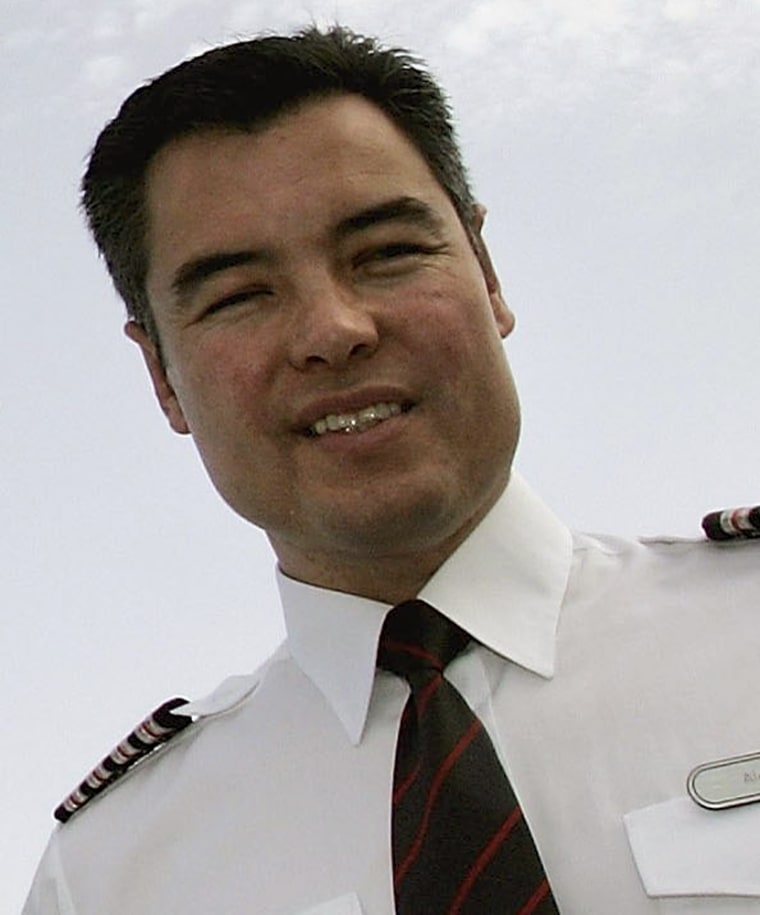Space tourism companies can survive the inevitable disaster if they warn passengers of the risks that a privately operated rocket ship could crash, an executive of one of the leading firms said Friday.
"God forbid it should happen on the first flight. Hopefully it's many, many years out," said Alex Tai, chief operating officer for British billionaire Richard Branson's Virgin Galactic space venture.
Tai said customers who are given an honest assessment of the risks will not be able to successfully sue operators after a crash. And he said the public understands the danger of space travel after two disasters involving NASA-operated space shuttles.
Virgin Galactic plans to begin test flights next year and carry the first paying customers — $200,000 per seat — in late 2009 or early 2010.
A competitor, Benson Space Co., still plans for a 2009 launch even after Chairman James W. Benson announced Friday that the company will redesign its Dream Chaser spaceship to make it lighter and more aerodynamic. The change came after five months of study and underscored the state of flux in the emerging space tourism business.
Tai and Benson spoke to a conference of space enthusiasts and entrepreneurs at a Dallas-area hotel. He gave a still-developing picture of what suborbital flight on a private vehicle will look like.
Virgin Galactic plans a pressurized cabin so passengers will not have to wear bulky space suits, "but you'll still get to dress up like an astronaut," Tai said.
There will be no height or weight limits, Tai said. The Federal Aviation Administration declined to require medical clearances. Tai said virtually anyone who signs a waiver can go, although those with serious heart conditions might be encouraged not to take an early flight.
Doug Griffith, a risk management expert who has studied the industry, said companies can protect themselves from lawsuits by advertising the dangers of space travel — but that might turn off customers. He advises companies to lobby for immunity legislation and, if there is a crash, be contrite and treat victims' families well.
Virgin Galactic claims to have taken $21 million in deposits from about 150 people. Each flight will carry two pilots and six passengers, who will get up to a week of training to prepare for weightlessness and the heavy G-forces that accompany acceleration of the ship.
Another competitor, Space Adventures Ltd., has already put five customers into orbit aboard Russian Soyuz capsules and plans $100,000 suborbital flights beginning around 2009.
Space Adventures charges $20 million to $25 million for trips to the International Space Station, like the flight made last year by Dallas-area entrepreneur Anousheh Ansari. Eric Anderson, the company's chief executive, is trying to find a customer who would pay $100 million for a flight to the moon, and he wants to sell a space walk.
There is no reason why a civilian could not make a space walk with a bit of training, said Anderson, whose company would benefit when the walker returns to Earth and talks about the journey.
"That would certainly do a lot to promote private space travel," he said.
Industry representatives and some former government officials say the private companies, in it for profit, are displacing NASA at the leading edge of human space travel.
In 2004, President George W. Bush announced a plan to send astronauts back to the moon by 2020 — more than 50 years after Neil Armstrong bounded down the ladder of Apollo 11 — but space entrepreneurs doubt that a taxpayer-financed program can succeed.
"NASA is increasingly irrelevant," Benson declared. "There is no way this country is going to support a $103 billion Apollo-on-steroids return to the moon.
